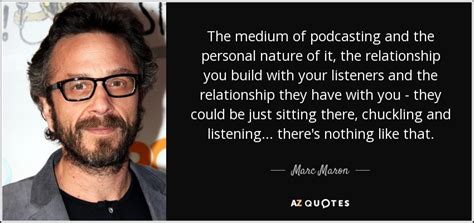
Some Thoughts About Podcasting…
![]() Last week I attended the Voice of Dentistry Conference here in Scottsdale. The main focus of the conference was supposed to be podcasting, but all the lectures were devoted to practice, financial and entrepreneurial management. Next to the lecture hall, however, was an exhibit hall dominated by podcasters. The idea of the conference was to attract attendees with CE. This was the ingenious “hook” to attract guest interviews for the podcasters. Anyone who has an ego or a cause to promote loves to be interviewed on a podcast.
Last week I attended the Voice of Dentistry Conference here in Scottsdale. The main focus of the conference was supposed to be podcasting, but all the lectures were devoted to practice, financial and entrepreneurial management. Next to the lecture hall, however, was an exhibit hall dominated by podcasters. The idea of the conference was to attract attendees with CE. This was the ingenious “hook” to attract guest interviews for the podcasters. Anyone who has an ego or a cause to promote loves to be interviewed on a podcast.
What is a podcast?
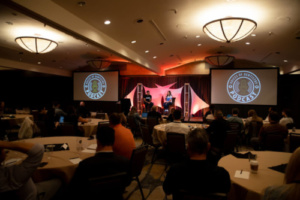 Ben Lutkevitch, Technical Features Writer for Tech Target, defines podcasting as “the preparation and distribution of audio files using RSS feeds to the computers of subscribed users. These files may then be uploaded to streaming services, which users can listen to on their smartphones or digital music and multimedia players, like an iPod. A podcast can easily be created from a digital audio file. In addition to RSS, podcasts may be hosted on or embedded in websites that enable the podcast to be streamed or downloaded.
Ben Lutkevitch, Technical Features Writer for Tech Target, defines podcasting as “the preparation and distribution of audio files using RSS feeds to the computers of subscribed users. These files may then be uploaded to streaming services, which users can listen to on their smartphones or digital music and multimedia players, like an iPod. A podcast can easily be created from a digital audio file. In addition to RSS, podcasts may be hosted on or embedded in websites that enable the podcast to be streamed or downloaded.
Podcasts are available as downloadable prerecorded talk-radio shows, and podcasters often publish episodes on a regular schedule. Podcasts have no prescribed format, length or style and may cover a range of subject areas. A single episode usually focuses on one topic or story. The cultural milieu of podcasting is sometimes referred to as the podosphere. [https://www.techtarget.com/searchunifiedcommunications/definition/podcasting]
Being A Podcast Guest
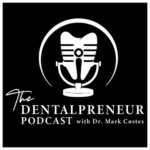 During the Voice of Dentistry Conference, I had the opportunity to be a guest on two podcasts: one with Dr. Mark Costes, the founder of the conference, and one with Dr. Alan Mead. Dr. Costes creates podcasts for his very well-known podcast, “The Dental Entrepreneur.” Dr. Costes himself is an amazing entrepreneur and reported that he just sold the last of 16 dental practices that he owned. His next focus is really admirable–the establishment of dental missions in underdeveloped countries around the world. Since my focus is teaching crown and bridge skills to dentists, I’m not sure I was a good fit for the Dental Entrepreneur Podcast. [https://www.truedentalsuccess.com/the-dentalpreneur-podcast/].
During the Voice of Dentistry Conference, I had the opportunity to be a guest on two podcasts: one with Dr. Mark Costes, the founder of the conference, and one with Dr. Alan Mead. Dr. Costes creates podcasts for his very well-known podcast, “The Dental Entrepreneur.” Dr. Costes himself is an amazing entrepreneur and reported that he just sold the last of 16 dental practices that he owned. His next focus is really admirable–the establishment of dental missions in underdeveloped countries around the world. Since my focus is teaching crown and bridge skills to dentists, I’m not sure I was a good fit for the Dental Entrepreneur Podcast. [https://www.truedentalsuccess.com/the-dentalpreneur-podcast/].
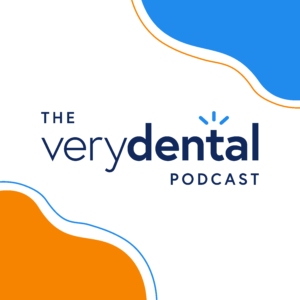 Dr. Alan Mead is the founder of the Very Dental Podcast Network, formerly the Dental Hacks podcast. Dr. Mead, who practices dentistry in Saginaw, Michigan, seeks out the best guests in the industry to share expertise on his podcast. It was clear from the start that Dr. Mead is an expert interviewer. We connected immediately. I felt honored and excited to be a guest on his podcast. [https://www.verydentalpodcast.com/]
Dr. Alan Mead is the founder of the Very Dental Podcast Network, formerly the Dental Hacks podcast. Dr. Mead, who practices dentistry in Saginaw, Michigan, seeks out the best guests in the industry to share expertise on his podcast. It was clear from the start that Dr. Mead is an expert interviewer. We connected immediately. I felt honored and excited to be a guest on his podcast. [https://www.verydentalpodcast.com/]
I’m looking forward to hearing how I did on both of these podcasts when they are released.
While most dentists have no desire to become podcast interviewers, it struck me that most dentists do need to develop great interviewing skills—for both new patient interviews and for hiring staff members.
New Patient Interview Skills
My mentor, Dr. Elliot Feinberg had exceptional interviewing skills. I often sat with him as he interviewed new patients. The interview was always held in the business office before the patient ever saw the dental chair. The patient was always greeted kindly and respectfully. According to a practice management article on the New Patient Interview in Dentistry Today, the first impressions of patients are of critical importance in determining their future with a dental practice.
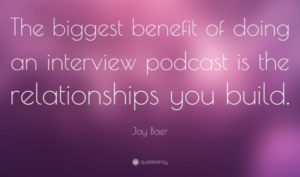
According to the editors of Dentistry Today Magazine, “we build a trust or distrust with our patients within 30 seconds of meeting them. The limbic system of the brain informs us at a very primal level whether the other is a friend or foe. The new person you just met is asking himself or herself 3 questions: can I trust you, do you care about me, and are you the right person to help me? All 3 of these questions will have a better answer if handled in a preclinical interview rather than in the sterile clinical setting with masks and gloves.” [https://www.dentistrytoday.com/sp-907424505/]
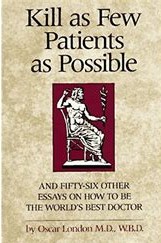 Taking the time to listen to the patient’s story is of paramount importance. It is important to listen without making judgement. Ask open-ended questions and let the patient talk. It is important to set aside enough time so that nothing is overlooked. As the patient tells his or her story, important clues to possible treatments, as well as mistakes made by previous dentists, will be revealed. Oscar London MD WBD, rants in his book Kill as Few Patients as Possible and 56 other Essays on How to be the World’s Best Doctor, “If only the doctor would sit down, shut up, and listen, the patient will eventually tell him the diagnosis!” The experts at Dentistry Today emphasize that patients are more likely to change their mindset or be compliant if they think their dentist understands them and they feel heard and respected.
Taking the time to listen to the patient’s story is of paramount importance. It is important to listen without making judgement. Ask open-ended questions and let the patient talk. It is important to set aside enough time so that nothing is overlooked. As the patient tells his or her story, important clues to possible treatments, as well as mistakes made by previous dentists, will be revealed. Oscar London MD WBD, rants in his book Kill as Few Patients as Possible and 56 other Essays on How to be the World’s Best Doctor, “If only the doctor would sit down, shut up, and listen, the patient will eventually tell him the diagnosis!” The experts at Dentistry Today emphasize that patients are more likely to change their mindset or be compliant if they think their dentist understands them and they feel heard and respected.
After the patient’s story is heard, the dentist has a unique opportunity to educate the patient about dentistry and about the special focus of the dental practice. Any discussion that takes place before the patient examination will be viewed as education, whereas discussion that takes place after the exam is more likely to be viewed as “selling.”
Interviewing Team Member Candidates
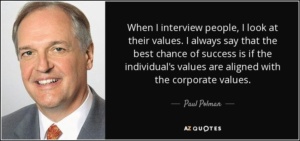 Great interview skills are also needed for hiring great team members. The Indeed Editorial Team points out 7 reasons why:
Great interview skills are also needed for hiring great team members. The Indeed Editorial Team points out 7 reasons why:
-
-
-
-
-
-
-
-
- To Attract and hire the best candidates
- To Determine which candidates have the best experience and skills for the job
- To Decide if a candidate can fit into the office culture
- To Ensure that the best candidates are as interested in your practice as you are in their professional qualifications
- To Determine whether a candidate is worth the time and resources to train and develop
- To Increase the likelihood that the best candidate accepts the job offer
- To Allow the use of hiring resources in the most effective and efficient manner.
-
-
-
-
-
-
-
[Indeed Editorial Team: Your Guide on How to Be a Good Interviewer; https://www.indeed.com/career-advice/interviewing/how-to-be-a-good-interviewer]
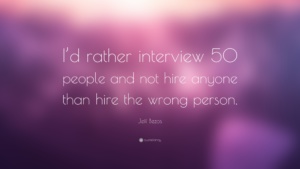 The Indeed Editorial Team offers 10 recommendations for developing the best interviews:
The Indeed Editorial Team offers 10 recommendations for developing the best interviews:
-
-
-
-
-
-
-
-
- Take time to prepare.
- Put some thought into interview questions.
- Review the candidate’s information before the interview.
- Decide on a structure to follow for each interview.
- Implement a standard rating system.
- Practice good listening skills.
- Consider practicing interview techniques with friends or coworkers.
- End the interview professionally.
- Allow the interviewee to ask questions.
- Review each interview and assess where improvements can be made.
-
-
-
-
-
-
-
We are all Podcasters…(without the headphones and the microphones)
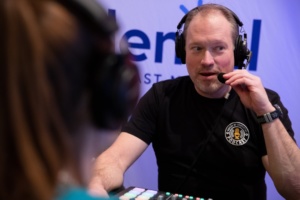
I was really impressed with Dr. Mead. He made me feel comfortable from the getgo. He was genuinely interested in my activities, my story, and my opinions. His excellent interview skills demonstrated that he cared deeply about me and also about the profession of dentistry.
As practicing dentists, we are conducting interviews every day. In a sense, we are all podcasters even though we don’t actually record our interviews. We can all develop better rapport with our patients and team members by honing our “podcasting” skills. As we become better podcasters, we will develop a crackerjack team and watch our case acceptance rate skyrocket.
Become the best practitioner in full coverage restorative dentistry that you can be! Don’t settle! Join the ONWARD program and learn how to do crown and bridgework with excellence and confidence, how to save “hopeless” teeth, and how to provide new options for patient treatment that you never thought of. Visit the website: https://theonwardprogram.com
Dr. Feinberg is also available to give presentations. His CV and speaker packet is posted on the website. (https://theonwardprogram.com/about-dr-feinberg/) Dr. Feinberg can be reached at info@theONWARDprogram.com.



![Blog Images [Autosaved] Blog Images [Autosaved]](https://theonwardprogram.com/wp-content/uploads/2023/11/Blog-Images-Autosaved-e1713401646295-300x200.jpg)